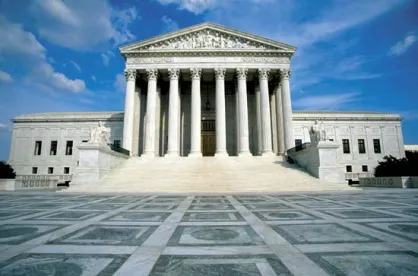Earlier this year, the United States Supreme Court, in Campbell-Ewald Co. v. Gomez, applied contract principles to hold that an unaccepted Rule 68 offer of judgment did not moot an individual’s claims or class or collective actions claims. The Court reasoned that an unaccepted offer remained a mere proposal with no binding effect on either party. However, the Court still has employers guessing.
In April 2013, in Genesis Healthcare Corp. v. Symczyk, the U.S. Supreme Court was faced with a Rule 68 offer of judgment rejected before the plaintiff filed a motion for conditional certification in a putative FLSA collective action. The Court assumed that the Rule 68 offer mooted the individual’s claims, and then held that, absent a plaintiff with a live individual case (and absent any claimants opting in), the action could not be maintained. This left open the question of whether a Rule 68 offer really can moot an individual’s FLSA action. It also begged the question of what happens in a Rule 23 class action.
The Supreme Court attempted to answer these questions in January 2016 in Campbell-Ewald Co. v. Gomez. The court was faced with a rejected offer of judgment in a Rule 23 class action. The majority applied contract principles to hold that a rejected offer is merely a proposal with no binding effect on either party. Therefore the parties remained adverse and the individual claims were not mooted by the rejected offer. Thus, the class could also proceed.
The Court in Gomez left open two critical questions.
-
Would the result be different if a defendant deposits the full amount of a plaintiff’s individual claim in an account payable to the plaintiff, and the court then enters judgment for the plaintiff in that amount?
-
If the individual’s claims were so mooted, what about Rule 23 class claims?
Since Gomez, employers have tried a number of different ways to moot individual claims, and thereby moot Rule 23 claims. Such efforts have included requesting permission under Rule 67 to deposit the amount of an earlier Rule 68 offer into the court’s registry, delivering a certified check and making an offer to deposit funds with the court, depositing money into an escrow account for the plaintiff’s benefit, and tendering a simple check. District courts’ reactions are all over the board. Some have held that these actions are still insufficient to moot even an individual’s claim because the conduct is still a mere offer or because the plaintiff must be provided, under Gomez, “a fair opportunity to show that certification is warranted.” Some, courts, however, have mooted individual claims and even expanded Genesis to moot Rule 23 actions.
Employers seeking to utilize Rule 68 to moot claims should survey cases in the applicable jurisdiction, but they still may be left guessing about the appropriate procedure and outcome. Cutting off putative class and collective actions early through Rule 68 is not as clear as it used to be, if it ever was, in many jurisdictions. The future of Rule 68 offers may very well depend on the future composition of our Supreme Court bench.




 />i
/>i
